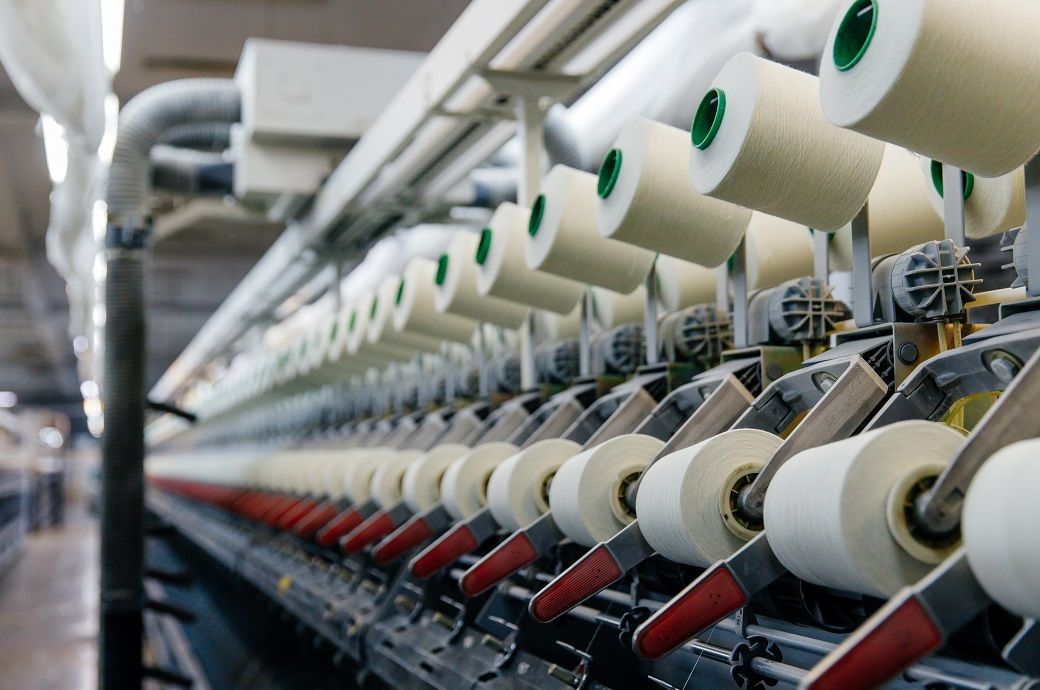
Cotton yarn prices in Ludhiana's market improved by ₹2-3 per kg due to enhanced demand following the Diwali break. Meanwhile, prices remained stable in Delhi's market. Traders anticipate improved buying in the near future. Experts believe that brands and retailers from the developed world will resume bulk purchasing as their inventories rapidly deplete. These entities had previously exercised caution in new acquisitions. In Panipat's market, cotton comber prices saw an increase. However, recycled yarn prices did not experience significant movement, with Panipat awaiting stronger buying interest.
The Ludhiana market experienced an improvement of ₹2-3 per kg in cotton yarn prices, showing increased optimism following Diwali. Gulshan Jain, a trader from the Ludhiana market, told Fibre2Fashion, "There was a general expectation of improved demand in the coming days. Cotton yarn prices rose due to this increased demand, leading stockists and millers to raise their prices." Additionally, a report indicated that garment exports might pick up in the upcoming months as inventories in the US and Europe are depleting rapidly. Amid uncertainties regarding economic growth, retailers and fashion brands remained cautious about new purchases.
In Ludhiana, 30 count cotton combed yarn was sold at ₹252-262 per kg (GST inclusive); 20 and 25 count combed yarn were traded at ₹242-252 per kg and ₹247-257 per kg respectively; and carded yarn of 30 count was noted at 232-237 per kg, according to Fibre2Fashion’s market insight tool TexPro.
The Delhi market experienced stability in cotton yarn prices, with average demand noted from the downstream industry. A trader from the Delhi market, speaking to F2F, stated, "Market sentiments did not improve after Diwali. There was only average demand, which did not support a price rise in cotton yarn. However, demand for cotton yarn may improve due to the seasonal demand for manufacturing summer garments in the coming months." In this market, 30 count combed yarn was traded at ₹250-255 per kg (GST extra), 40 count combed at ₹75-280 per kg, 30 count carded at ₹227-231 per kg and 40 count carded at ₹252-255 per kg, as per TexPro.
In Panipat, the recycled yarn market did not witness any movement in prices. However, cotton comber prices increased by ₹2 per kg due to the reduced supply of raw materials. Traders mentioned that the recycled yarn prices have stabilised since they have already reached their lowest point. Mills have decreased production to remain viable in the bearish market. India's prominent home textile hub is still awaiting an upturn in demand from the downstream industry.
In Panipat, 10s recycled PC yarn (Grey) was traded at ₹74-78 per kg (GST paid). Other varieties and counts were noted at 10s recycled PC yarn (Black) at ₹49-52 per kg, 20s recycled PC yarn (Grey) at ₹85-90 per kg and 30s recycled PC yarn (Grey) at ₹133-142 per kg. However, cotton comber prices were noted at ₹112-114 per kg. Recycled polyester fibre (PET bottle fibre) was noted at ₹67-70 per kg.
Cotton prices in north India eased further due to limited buying, influenced by the recent decline in ICE cotton. Prices dropped by ₹20-30 per maund (37.2 kg) across most north Indian markets. Traders attribute this decline to the fall in ICE cotton, which led buyers to anticipate a further decrease in the price of the natural fibre. Total arrivals in north India were reported at 25,000 bales (170 kg each). State-wise, the arrivals were: Punjab with 2,500 bales, Haryana with 8,500 bales, upper Rajasthan with 7,000 bales, and lower Rajasthan also with 7,000 bales. In Punjab, the natural fibre was priced at ₹5,420-5,520 per maund, in Haryana at ₹5,400-5,500 per maund, and in upper Rajasthan at ₹5,340-5,440 per maund. In lower Rajasthan, the price was ₹52,800-54,800 per candy (356 kg). The prices were slightly higher in the Bikaner line of upper Rajasthan.
ALCHEMPro News Desk (KUL)
Receive daily prices and market insights straight to your inbox. Subscribe to AlchemPro Weekly!